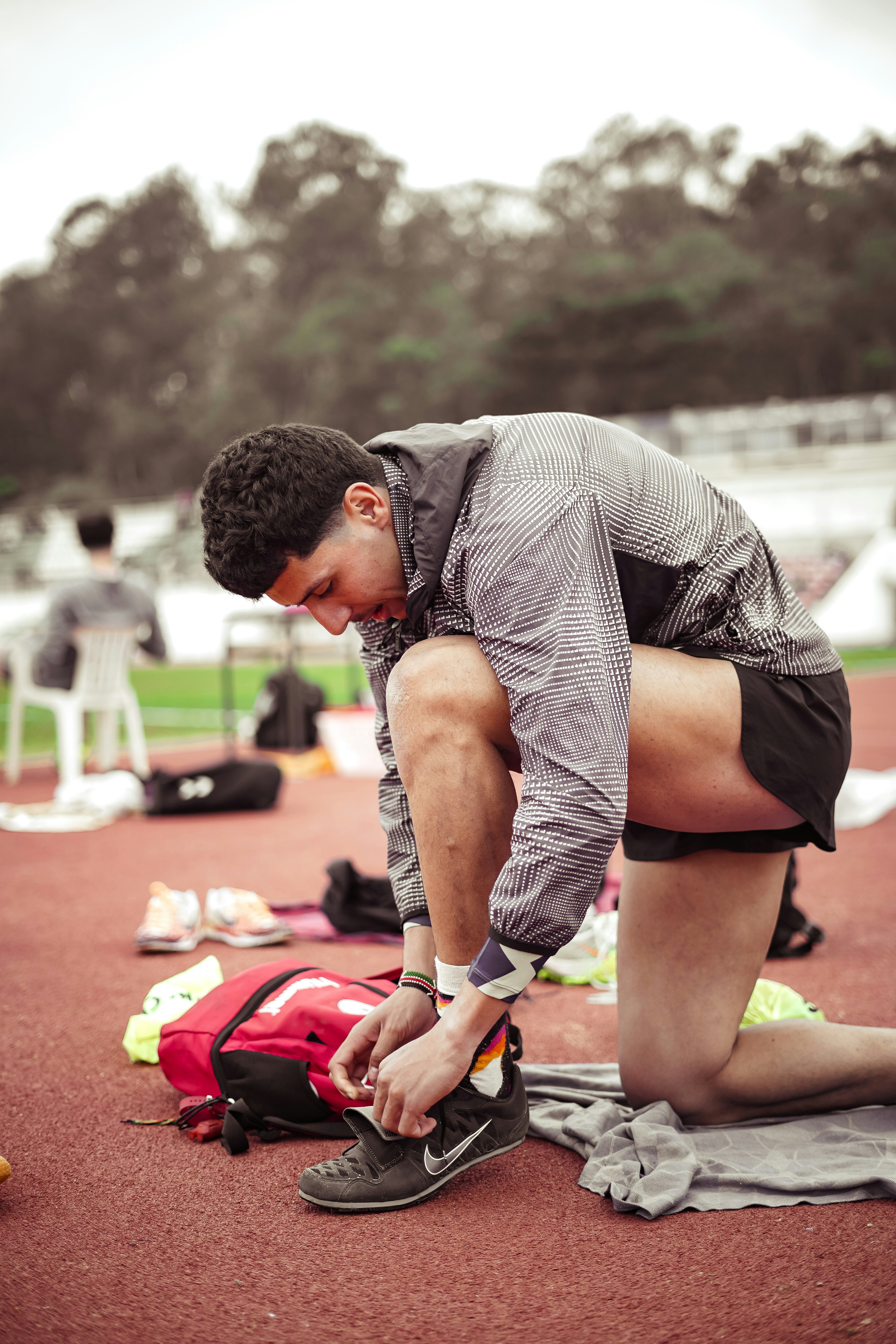Sporting Souls: Explore Ancient Philosophies in Modern Athletics
In an age where elite athletes push the boundaries of human performance, the influence of ancient philosophies on modern athletic training is a fascinating intersection of history and innovation. Athletes like LeBron James and Serena Williams aren't just known for their physical prowess; their mental resilience is often rooted in age-old teachings. This article embarks on a reflective journey, examining how philosophies from Stoicism, Buddhism, and Indigenous wisdom are redefining the mental game in sports today.
The Relevance of Ancient Wisdom in Athletic Training

With science and technology at the forefront of sports training, the revival of ancient philosophical teachings provides a refreshing perspective on mental health and performance. Athletes today are increasingly turning to these philosophies not merely as abstract concepts but as actionable frameworks to enhance their resilience, focus, and performance. By understanding these philosophies, athletes can cultivate a strengthened state of mind that complements their physical training.
Stoicism: The Modern Athlete’s Mindset

Stoicism, an ancient Greek philosophy founded by Zeno of Citium, teaches the importance of rationality and self-control. It emphasizes accepting what one cannot change and focusing on what can be controlled—concepts easily applicable to sports.
Take, for instance, the famed quote from Greek philosopher Epictetus: “It’s not what happens to you, but how you react to it that matters.” This mindset encourages athletes to view setbacks, such as injuries or defeats, as opportunities for growth. By embracing a Stoic philosophy, athletes learn not to dwell on the uncontrollable elements of competition but to harness their energy on preparation and training. For more insights into how athletes build mental toughness, check out our piece on the resilience factor in sports.
Buddhism: Mindfulness and the Flow State

Buddhism, characterized by its emphasis on mindfulness and the concept of 'no attachment,' offers valuable tools for athletes striving to achieve peak performance. Central to Buddhist practice is the idea of being present in the moment, which directly correlates with the notion of 'flow' recognized in sports psychology.
When athletes learn to quiet their minds and focus on their current actions—be it a basketball free throw or a golf swing—they tap into a reservoir of potential that elevates their performance. Mindfulness training helps athletes reduce anxiety and stress, enabling them to perform consistently under pressure. Using techniques such as meditation and breathing exercises, athletes can cultivate a mental environment that fosters clarity and focus. For an exploration of how technology intersects with athletic focus, read our article on the rise of biometric data in sports.
Indigenous Wisdom: Collective Strength and Community Support

Indigenous wisdom brings a unique perspective to sports training, emphasizing the importance of community, spirituality, and the interconnectedness of all things. Many Indigenous cultures regard athletic performance not just as an individual endeavor but as a component of a communal journey.
Athletes who draw on Indigenous teachings often speak about the power of collective support. This might manifest in team rituals or gatherings that transcend competitive rivalry, fostering an atmosphere where shared victories and losses strengthen bonds. By understanding their place within a larger legacy of athletes, modern sports practitioners can draw on rich cultural histories to inspire growth, accountability, and unity. To delve deeper into this connection, we recommend exploring the impact of local sports leagues on community engagement.
Training Regimens Infused with Ancient Thought

The integration of these philosophies extends beyond mindset—these timeless teachings are influencing training regimens and techniques as well. Modern athletes are blending physical training with mental fortification strategies rooted in established wisdom, creating holistic approaches to performance.
Mindful Practices in Training

Athletes are incorporating mindfulness practices into their daily routines, from yoga sessions that promote flexibility and calming techniques to visualizations that condition the mind. Yoga, deeply rooted in both Buddhist and Hindu philosophies, not only improves physical performance but also trains the mind to remain calm under pressure.
Mindfulness can also be woven into traditional workouts. For example, during weightlifting or sprinting, athletes can focus on each rep, tuning into their body's sensations and reactions instead of letting their minds wander. This practice cultivates a heightened sense of self-awareness, allowing athletes to identify strengths and weaknesses more efficiently.
Collaborative Spaces: Creating a Team Environment

Athletes trained in Indigenous or communal philosophies tend to advocate for more supportive environments. By creating spaces where feedback is constructive and teammates uplift one another, they encourage a culture of growth rather than competition. This collective training model counteracts the all-too-common “lone genius” mentality present in elite sports.
The narrative is shifting; teams are now prioritizing emotional intelligence in recruitment and training—bringing in sports psychologists to enhance team dynamics and communication. Explore how teams are leveraging psychology for enhanced performance in our article on team psychology.
Psychological Resilience: The Ultimate Challenge

One of the most valuable lessons from these ancient philosophies is the enhancement of psychological resilience. The modern sports landscape is rife with pressure, and athletes often find themselves grappling with mental health issues like anxiety and burnout. The teachings of Stoicism, Buddhism, and Indigenous wisdom can provide coping strategies to navigate these challenges effectively.
Embracing Setbacks

Athletes such as Tom Brady and Michael Phelps have faced public scrutiny and personal hardship. In those moments, many have referenced the importance of resilience—an essential trait fostered through Stoicism’s acceptance of setbacks. The message is clear: for every challenge, there is an opportunity for growth.
By learning to embrace failures as natural components of the journey, athletes can deflate the pressure of high expectations and refocus on improvement. Integrating practices from these ancient philosophies can encourage players to view their path as a continuous learning experience rather than a linear trajectory.
Building a Robust Mental Framework

Cultivating a robust mental framework involves drawing on teachings that instill confidence and strength. For instance, the emphasis on present-moment focus espoused by Buddhism aids athletes in developing strong coping mechanisms for anxiety and performance pressure, allowing them to harness their energy efficiently during competition.
Moreover, the collective focus advocated by Indigenous philosophies can teach athletes the importance of community and shared responsibility, which can be crucial pillars when facing external pressures. Resources such as mental health strategies for athletes provide valuable insights into building these robust frameworks.
Next Steps: Cultivating the Mind-Body Connection
Ancient philosophies offer a wealth of insight that can enhance athletic performance in modern contexts. As athletes and coaches increasingly explore these teachings, the next steps involve practical application and community workshops to understand their significance further.
Educational Workshops and Training Camps
Leagues and teams should prioritize workshops that integrate ancient philosophical teachings into modern training regimens. By collaborating with experts in mindfulness, Stoicism, and Indigenous practices, athletes can glean practical strategies that foster resilience and mental fortitude.
Resources and Personal Development Plans
Athletes should create personal development plans that include mental training modules focused on these philosophies. By setting aside dedicated time for practices such as meditation, reflective journaling, or team rituals based on Indigenous customs, athletes can cultivate a well-rounded approach to their craft.
In doing so, we might witness a profound evolution in athletic endeavors, where performance is increasingly characterized by the mind’s strengths as much as the body’s.
Final Thoughts: The Intersection of Philosophy and Performance
In this quest to explore how ancient philosophies shape modern athletic mindsets, it becomes clear that the foundation of performance goes beyond physical conditioning. The mental game, bolstered by the wisdom of the ages, stands as a crucial pillar in the athlete’s journey.
By drawing connections from the past, we can enhance resilience, focus, and collective strength—parameters integral not only to individual athletes but to the wider sports community. As we continue to embrace these teachings in our coaching, training, and personal development, athletes will find themselves not only chasing records but also nurturing a balanced and fulfilling pathway.
As we look forward to the future of sports, the harmony between body and mind stands as a testament to the enduring value of these ancient philosophies—reminding us that alongside physical prowess, it is the heart and spirit of the athlete that truly defines excellence.



